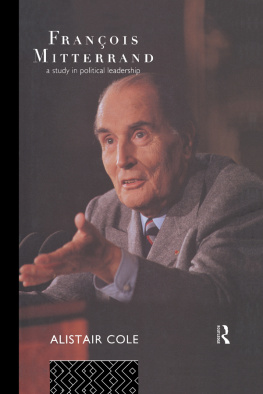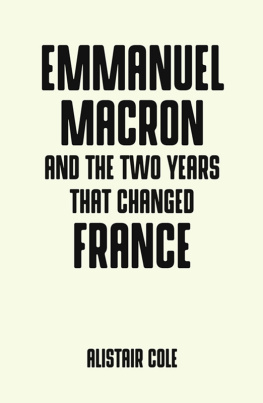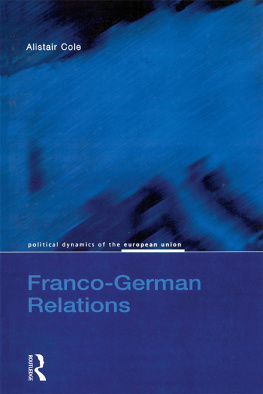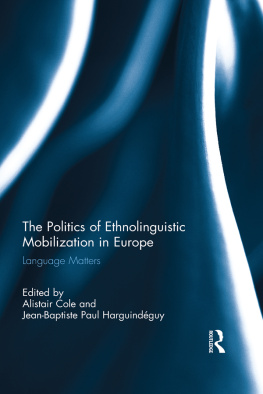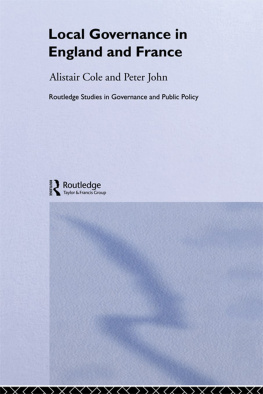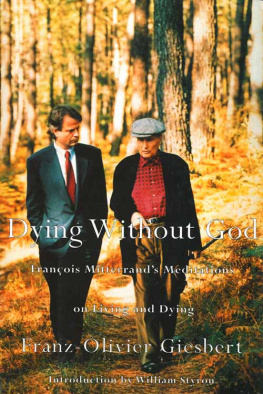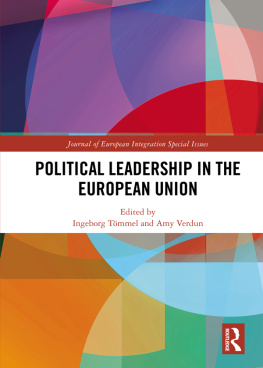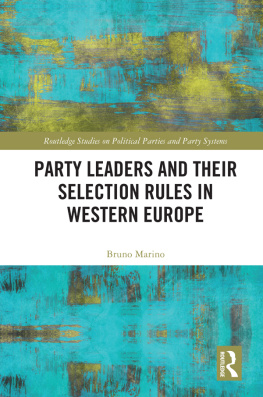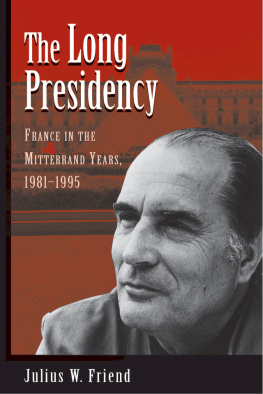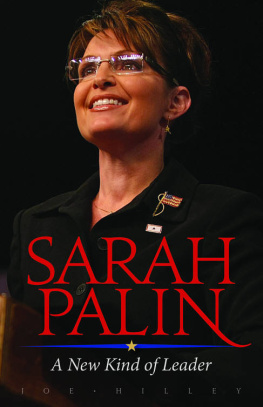Franois Mitterrand
A study in political leadership
Alistair Cole
First published 1994
by Routledge
2 Park Square, Milton Park, Abingdon, Oxon, OX14 4RN
Transferred to Digital Printing 2004
Simultaneously published in the USA and Canada
by Routledge
29 West 35th Street, New York, NY 10001
1994 Alistair Cole
Typeset in Garamond by
PontingGreen Publishing Services, Chesham, Bucks
All rights reserved. No part of this book may be reprinted or reproduced or utilized in any form or by any electronic, mechanical, or other means, now known or hereafter invented, including photocopying and recording, or in any information storage or retrieval system, without permission in writing from the publishers.
British Library Cataloguing in Publication Data
A catalogue record for this book is available from the British Library
Library of Congress Cataloging in Publication Data
Cole, Alistair, 1959
Franois Mitterrand : a study in political leadership / Alistair Cole.
p. cm.
Includes bibliographical references and index.
ISBN 0-415-07159-3
1. Mitterrand, Franois, 1916 Political and social views. 2. France Politics and government 1981 3. Presidents FranceBiography. 4. SocialismFranceHistory20th century. 5. Political leadershipFranceHistory20th century. I.Title.
DC423.C63 1994
944.0838092dc20
[B] 9328183
CIP
ISBN 0415071593
ISBN 0415163366
CDS Centre des dmocrates Sociaux
CDU German Christian Democratic Union
CERES Centre dEtudes et de recherches socialistes
CFDT Confdration franaise dmocratique du travail
CGT Confdration gnrale du travail
CIR Convention des institutions rpublicaines
CSCE Conference on Security and Cooperation in Europe
DOM-TOM Dpartements doutre-mer/ Territoires doutre mer (Overseas departments and territories).
EC European Community
EFTA European Free Trade Association
EMS European Monetary System
ENA Ecole National dAdministration
EPU European Political Union
ERM Exchange Rate Mechanism
ESPRIT European Strategic Programme for Research and Development in Information Technology
EUREKA European Programme for High Technology Research and Development
EUT European Union Treaty
FGDS Fdration de la Gauche dmocratique et socialiste
FN Front national
FRG Federal Republic of Germany
GATT General Agreement on Trades and Tariffs
GNP Gross National Product
IGC Intergovernmental Conference
LCR Ligue pour le combat rpublicain
MRP Mouvement rpublicain populaire
NATO North Atlantic Treaty Organisation
PSA Parti socialiste autonome
PSU Parti socialiste unifi
PCF Parti communiste franais
PS Parti socialiste
RDA Rassemblement africain
RPF Rassemblement du peuple franais
RPR Rassemblement pour la Rpublique
SFIO Section franaise de linternationale ouvrire
SGE Secrtariat gnrale de lElyse
SGDN Secrtariat gnrale de la dfense nationale
SGCI Secrtariat gnrale du Comit interministrielle
SPD German Social-democratic
UCRG Union des clubs pour le renouveau de la gauche
UDC Union du centre
UDF Union la dmocratie franaise
UDSR Union dmocratique et socialiste de la rsistance
UGCS Union de la Gauche des clubs socialistes
UN United Nations
UNR Union pour la nouvelle Rpublique
WEU West European Union
As the order in the title suggests, this book is intended first and foremost as a study of Franois Mitterrand, with special (but not exclusive) reference to the Mitterrand presidency. It is also aimed to contribute towards the study of political leadership. Through evaluating Mitterrands political persona, and his activities as a politician spanning the entire postwar period, I hope to be able to draw wider conclusions pertaining to the French polity. Quite apart from being an object of individual fascination, Mitterrand is treated as a vehicle for examining various aspects of the French political system. These include: types and styles of political leadership, the party system, the organisation of the French executive, byzantine governing methods, the role of networks and patronage, continuity and change in French foreign and European policy, etc.
This portrayal of Mitterrand attempts to combine a chronological outline with extensive thematic analysis. Various objections can be levelled against adopting primarily a chronological approach. We run the risk of presenting the subjects career as a neat, uninterrupted progression of interlocking episodes, following logically one from another. This idea of linear progression underpins most biographical life-stories. The key danger here is that of retrospection: through dividing the subjects life into a series of compact episodes, the author invariably places too great a cohesion upon his or her activity. It is far from certain that the subject actually lived those episodes with the cohesion usually accredited to him or her by the author.
An obvious alternative to the episode-based study is one which concentrates upon the varying roles performed by an individual within the political system_ the party leader, the head of government, the European statesman and so on. This approach has the advantage of portraying political activity as multifaceted, but itself suffers from several disadvantages, especially if it implies too strict a demarcation between the various roles performed by a political leader. Indeed, the methodological objections to a chronological treatment are less pervasive, but not absent from a more thematic-based approach: the writer continues to exercise his own judgement in deciding which themes are primordial, and in attributing an element of cohesion where none may originally have existed.
The selection of events themselves is to some extent a subjective exercise; why is one event, theme or policy brought to the attention of the reader, and not another? It is probably inevitable that, for certain readers, insufficient attention will have been paid to important events and themes which figure prominently in other works as major staging-posts of Mitterrands career. I decided, for example, that the constraints of space, and the existence of various policy-based studies of the Mitterrand presidency precluded a more detailed analysis of the policy record of the 198193 governments. Other omissions might appear less defensible: little attention is paid to Mitterrands media personality, for instance, in spite of the obvious importance of mass media in projecting political images and reinforcing the personalisation of the Fifth Republican political system. Detailed consideration of this subject has been sacrificed to word-limit constraints, and the fact that it has been treated elsewhere. As a general point, the themes dealt with in this book re-emerge throughout Mitterrands long political career. They are intended to highlight the consistencies which underpin the career of a remarkable survivor. The dangers of the selectivity exercise are real, but this should not preclude the enterprise altogether.
I would like to thank those French politicians and civil servants who took time out of their busy schedules to agree to an interview. I offer my understanding and condolences to the legion of Socialist politicians who were too busy fighting for their own political survival to agree to my request for an interview. Among the many French and British sources of inspiration and assistance, I should particularly like to thank Martin Harrison and Peter Morris, both of whom read the manuscript with a keen critical sense and whose comments were welcomed. Finally, I am grateful to the Nuffield Foundation for their generous financial assistance, and to Keele University: without their combined financial and logistical support, this book would have been far more difficult to write.

